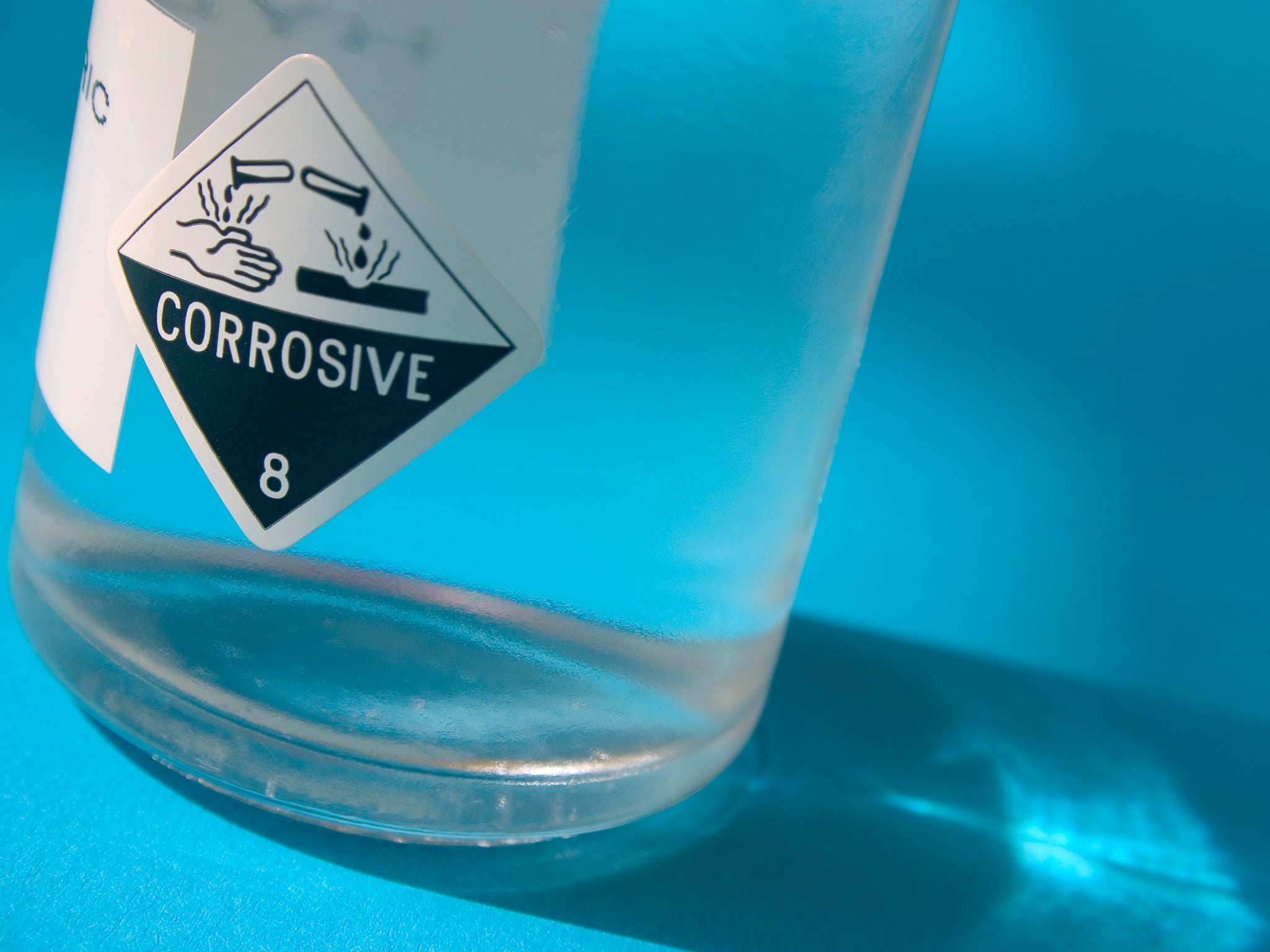Repeat acid offenders could soon face prison under new proposals to counter attacks
Two strikes rule will mirror the regime for those convicted of more than one knife possession offence

Your support helps us to tell the story
From reproductive rights to climate change to Big Tech, The Independent is on the ground when the story is developing. Whether it's investigating the financials of Elon Musk's pro-Trump PAC or producing our latest documentary, 'The A Word', which shines a light on the American women fighting for reproductive rights, we know how important it is to parse out the facts from the messaging.
At such a critical moment in US history, we need reporters on the ground. Your donation allows us to keep sending journalists to speak to both sides of the story.
The Independent is trusted by Americans across the entire political spectrum. And unlike many other quality news outlets, we choose not to lock Americans out of our reporting and analysis with paywalls. We believe quality journalism should be available to everyone, paid for by those who can afford it.
Your support makes all the difference.Criminals who are caught twice with corrosive substances will automatically face a prison sentence of at least six months under proposals to counter the threat of acid attacks.
The "two strikes" rule will mirror the regime for those convicted of more than one knife possession offence.
And online retailers could face criminal proceedings if they deliver knives to a buyer's home, in a measure aimed at clamping down on sale of blades to children and teenagers.
The steps form part of a drive to tackle violent crime following a surge in offences recorded by police.
After a flurry of high-profile incidents, earlier this month the Government announced plans to create a new offence of possession of a corrosive substance in public without a good or lawful reason.
The full Home Office consultation document published reveals the proposed crackdown will also see those convicted for a second time face a mandatory minimum sentence.
The approach will be modelled on a system rolled out in 2015 for offenders repeatedly caught with knives.
Minimum sentences were introduced for those aged 16 and over who are convicted of a second or subsequent offence of possession of a knife or offensive weapon.
The punishment is at least six months' imprisonment, which can include suspended terms, for adults, while young offenders face a minimum four-month detention and training order.
Judges must impose the minimum sentence unless there are particular circumstances relating to the latest offence, the previous offence or the offender which would "make it unjust to do so in all the circumstances".
The consultation document says it is not intended that "corrosive substance" will be defined in legislation as the offence "must be flexible enough to cover a range of possible situations: from someone possessing a corrosive substance in a public place that if used as a weapon can leave life-changing injuries; through to someone using a less harmful corrosive substance which if used as a weapon can still be very unpleasant to the victim but the effect is not lasting".
A new offence to stop the sale of acids and the most harmful corrosive substances to under-18s is also being weighed up.
Police figures show there were 408 attacks using corrosive substances between November 2016 and April this year.
"The use of corrosive substances as a weapon is centuries old, but whilst the number of offences is relatively small, we are concerned about its increasing use as a weapon," the document says.
It also sets out plans unveiled earlier this year to tighten the regime covering online sales of knives following concerns that age-verification checks can be sidestepped.
Where a knife is sold on the internet, it will be an offence to deliver the item to a private residential address.
The buyer would have to collect the knife in person at a location where their age can be checked.
The new offence "will provide additional safeguards to the current legislation", the consultation document says, flagging up concerns that "too many online sales break the law that knives must not be sold to under 18s".
It will be for retailers to decide where purchasers can collect the knives bought online and have their age checked, the Home Office said.
The document suggests online-only sellers could enter third-party agreements with another retailer, collection service or post office.
Home Secretary Amber Rudd said: "All forms of violent crime are totally unacceptable, which is why we are taking action to restrict access to offensive weapons and crack down on those who carry acids with the intent to do harm."
The proposals relating to online sales of knives and possession and sales of corrosive substances apply to England, Wales and Scotland.
Join our commenting forum
Join thought-provoking conversations, follow other Independent readers and see their replies
Comments